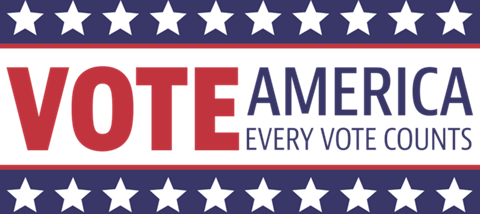
It strikes me as rather odd that only Americans vote in the upcoming election, because the rest of us are going to be affected by it.
Regarding whether it is a Christian duty to vote, I see it as a second order Christian duty. Vote if you can, but I don’t think you’ve committed some huge sin if you don’t. From the 18th Century onwards, with the rise of modern Western democracies, it has been assumed that, now you have a vote – and of course there was a time when various people, including women, didn’t – you have a duty to use it. I would broadly support that, but I’m not sure it’s a specifically Christian duty. A lot of the New Testament was written to people who didn’t have any voting rights at all. And I think they would have said that if you have the chance to influence the way the world is going, you should make the most of that opportunity.
But here’s the problem: when we vote for somebody, we are not saying we agree with them about everything and support them in everything they want to do. We’re simply saying: at this moment in our country’s history, we need the kind of leadership that broadly this person or party might produce. And if one looks at all the parties and says: “I think they’re all going in the wrong direction,” then it might well be a Christian duty to spoil the ballot paper or to write “none of the above” (although that’s a fairly ineffective protest, because that vote just goes in the bin).
A binary vote is a very blunt instrument. And the chances of finding one candidate who you absolutely agree with and another who you absolutely don’t, is fairly minimal. I think this emerges from the ideology of the 18th Century, which was basically to get rid of kings, bishops, all hierarchies telling us what to do. We, the people, will decide and then utopia will arrive. It assumed that there must be one candidate or party who is just two or three steps from that utopia.In Britain, we have actually never really believed that. We have tended to think we are voting for the least worst! And once you say you’re voting for the least worst, then I think there’s a kind of sigh of relief – I do not have to scrutinise every bit of this person’s voting record, I simply have to assess what the options are and what will be best for the world and for my country, in the current state of affairs.
Tom Wright is research professor of New Testament and Early Christianity at the University of St Andrews. He writes a bi-monthly column in Premier Christianity magazine and appears on Premier's fortnightly podcast Ask NT Wright Anything. Subscribe to Premier Christianity today and find out more






























